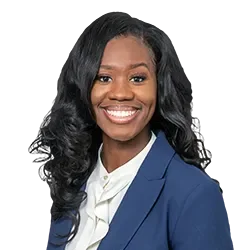ASAP
FCC Takes Aim at Media Companies’ IE&D Efforts
Federal Communications Commission (FCC) Chair Brendan Carr recently revealed in a social media post the agency’s latest probe into various media entities’ inclusion, equity, and diversity efforts.
As detailed in a March 27, 2025, letter addressed to The Walt Disney Company CEO Robert A. Iger, Carr expressed concern that the company’s inclusion, equity, and diversity practices “promot[e] invidious forms of DEI discrimination” in violation of FCC equal employment opportunity regulations. In particular, the letter targets Disney’s efforts to make “DEI a key priority for the company’s businesses” in recent years. Carr cites to multiple reports that the company has “embedded explicit race- and gender-based criteria” in its corporate operations, such as launching employee resource groups, amplifying underrepresented stories and voices through its “Reimagine Tomorrow” initiative which seeks to have "50% of regular and recurring characters" be drawn from "underrepresented groups," and offering incentives and bonuses based on diversity.
In recent weeks, the FCC has given other indications of where its challenges to inclusion, equity, and diversity efforts may lead. This latest probe comes on the heels of another FCC investigation into other media companies’ inclusion, equity, and diversity policies. The FCC has also threatened to block mergers or other transactions needing FCC approval over such policies. In a March 21, 2025, interview with Bloomberg News, Carr stated that any businesses looking for FCC approval need to end “any sort of their invidious forms of DEI discrimination,” because if they did not, FCC may not “reach the conclusion that approving the transaction is going to be in the public interest.” The FCC may also look to pull broadcast licenses from entities that are deemed to have engaged in “DEI discrimination.” In a March 31, 2025 interview on Fox News that discussed these investigations, Carr suggested that evidence of a company engaging in discrimination could “fundamentally go to their character qualifications to even hold a license.” Such actions from the FCC could have major implications for how FCC-regulated entities conduct business.
First Amendment Implications
The current administration’s engagement with inclusion, equity, and diversity efforts raises special considerations around free speech for employers in the entertainment and media industries. The FCC’s March 27 letter raises questions about the scope of its investigation and whether such investigations may interfere with the entertainment and media companies’ rights under the First Amendment to create expressive content of their choosing.
In the letter, the FCC refers not only to employment practices around affinity groups and hiring, but also to characters appearing on screen, television pilots that Disney chooses to pick up, and other considerations regarding societal representation in its programming. Governmental regulation on these practices would likely have direct consequences for the company’s creative and artistic expression and its “creative decisions about what story to tell,” which is protected by the First Amendment, even against the application of anti-discrimination statutes.1 Disney has asserted a similar First Amendment defense in Carano v. The Walt Disney Company, an ongoing lawsuit in which Disney is attempting to protect its artistic expression in a termination decision. The terminated employee sued alleging she was wrongfully discharged due to her political views and her sex. The legal precedent around this defense is still developing, and now that the FCC has turned its focus to this area, we expect that similar cases may continue to arise in the future.
Time will tell whether the company will pursue a First Amendment argument in response to the FCC’s investigation and how it may affect its outcome. Littler will continue to follow this situation and other developments on First Amendment defenses to claims of employment discrimination.
Probe Into Inclusion, Equity, and Diversity Efforts Impact on Other Industries
While Disney and other FCC-regulated organizations are currently facing scrutiny, organizations across all industries are facing pressure to reduce language referencing inclusion, equity, and diversity, or eliminate inclusion, equity, and diversity initiatives altogether. Some organizations have pushed back against government proposals while others have eliminated, scaled back, or revised inclusion, equity, and diversity programs and initiatives.
Tips for Employers
As the legal landscape for inclusion, equity, and diversity efforts continues to change, and the federal government is now the driving force influencing these efforts, there are steps that employers can take to ensure compliance with anti-discrimination laws.
- Ensure that all benefits and opportunities related to employment are open to all employees in compliance with relevant laws, and without regard to any prohibited protected characteristics.
- Ensure that any affinity groups, program memberships, or events are not restricted to individuals who share a protected characteristic and do not exclude individuals who do not.
- Avoid using set numbers, percentages, or “quotas” related to individuals with certain protected characteristics when considering how to set or achieve goals related to inclusion, equity, and diversity.
- For employers in entertainment and media, consider which decisions relate to the creative process of producing expressive content and may be protected by the First Amendment, and which may not.
- Consider undertaking a privileged internal review or self-assessment of inclusion, equity, and diversity efforts to assess legal compliance, identify risk factors, and understand employee perspectives on workplace culture.



